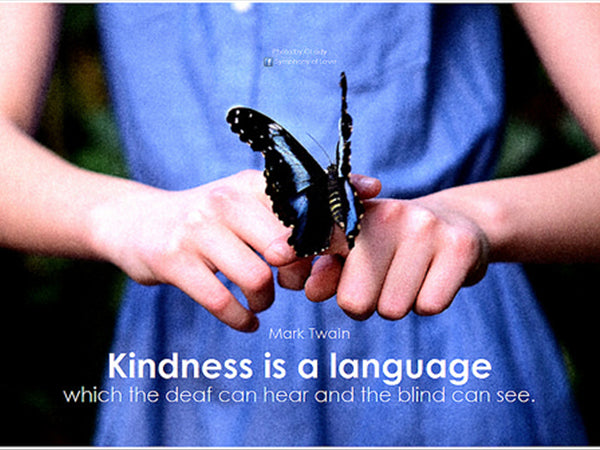At Stanford University, you’ll find a Center for Compassion and Altruism Research and Education. Every year, they hold a "Compassion Week" (November 10-16 this year, if you were curious) with a number of events, including a conference on the science of compassion. At this conference, experts from all over will gather to discuss their latest research and scientific findings in the areas of compassion, empathy, and altruism.
If you’re wondering why an esteemed university, as well as leading neuroscientists from across the country, are interested in studying the science behind compassion, it’s because empathy has fascinating effects on the brain, and in turn, our overall health. For example, were you aware that the pleasure centers of our brain experience the exact same amount of activity when we’re giving gifts as when we’re receiving them? That’s right… giving makes you feel good!
Kindness and compassion don’t only positively affect us. It also affects the people around us. Numerous studies have indicated that “kindness” boosts attraction levels for potential mates, and when we help others, it can create an emotional response and similar behavior in the people around us. This is why people tend to do charity work in groups, or tend to give more when they see someone else give first. All of this benefits our society as a whole.
But what about our health? Compassionate living has a marked effect on our level of happiness, and studies have shown that happiness often has a direct link to quality and length of life. A study conducted at the University of Michigan found that among the elderly, those who were more helpful tended to live longer and feel happier. Of course, it’s not all ambiguous. Other studies have shown that social and well-liked people have better immune systems and get sick less often. On the flip side, feeling disconnected or separated from other people leads to effects similar to those seen in smokers or medically obese patients.
Yet another health bonus: in studies of happiness levels, people who lived lives full of pampering and purchasing showed higher levels of inflammation than those who lived lives they described as “purposeful.” This has been related to possible stress levels. People who live lives full of “stuff” are often worried about losing their lifestyle, while people who live more to help others receive pleasure from the work they do either way.
Many people operate under the idea that altruism and helpfulness is foreign to human beings, but the science says otherwise. When observing infants, scientists have found that toddlers and small children often automatically engage in helpful behavior. If they are being hurtful and are told to modify their behavior by an adult, they will often comply quickly and then maintain the modified behavior. Children as young as two have been observed to experience pleasure when sharing or giving treats to others.
As we can plainly see, the benefits of compassion are numerous and incredibly good for our health. For those struggling with depression or other mood imbalances, participating in altruistic behavior along with leading a healthier lifestyle can make vast improvements in their mood.
Try it for yourself!
















